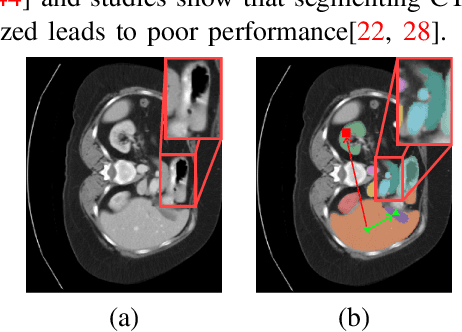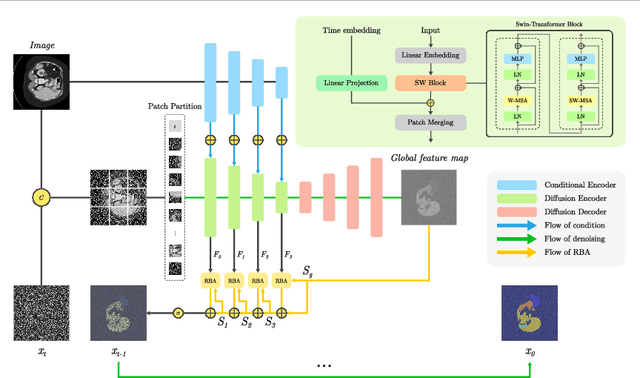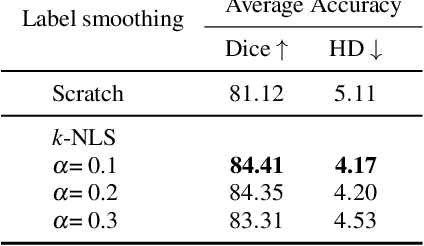Advancing Medical Image Segmentation: Morphology-Driven Learning with Diffusion Transformer
Paper and Code
Aug 01, 2024



Understanding the morphological structure of medical images and precisely segmenting the region of interest or abnormality is an important task that can assist in diagnosis. However, the unique properties of medical imaging make clear segmentation difficult, and the high cost and time-consuming task of labeling leads to a coarse-grained representation of ground truth. Facing with these problems, we propose a novel Diffusion Transformer Segmentation (DTS) model for robust segmentation in the presence of noise. We propose an alternative to the dominant Denoising U-Net encoder through experiments applying a transformer architecture, which captures global dependency through self-attention. Additionally, we propose k-neighbor label smoothing, reverse boundary attention, and self-supervised learning with morphology-driven learning to improve the ability to identify complex structures. Our model, which analyzes the morphological representation of images, shows better results than the previous models in various medical imaging modalities, including CT, MRI, and lesion images.
 Add to Chrome
Add to Chrome Add to Firefox
Add to Firefox Add to Edge
Add to Edge